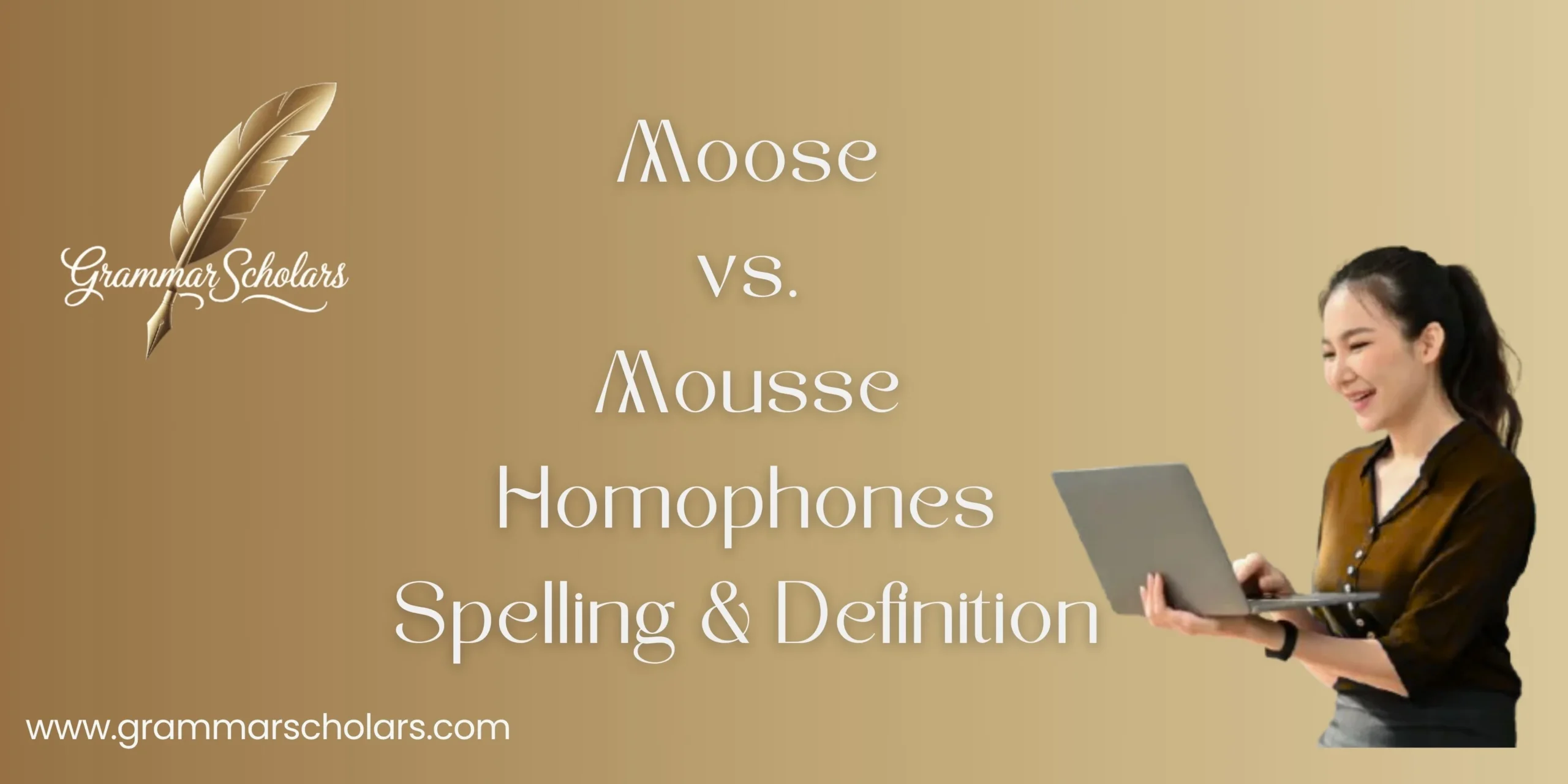Moose vs. Mousse Homophones, Spelling & Definition
When you hear moose, you might picture a huge, majestic animal in the forest, while mousse is a fluffy dessert or hair product. These words, though sounding the same, differ completely. This makes Moose vs. Mousse Homophones Spelling & Definition a common challenge for English learners, testing both memory and context skills. Though they sound … Read more




















